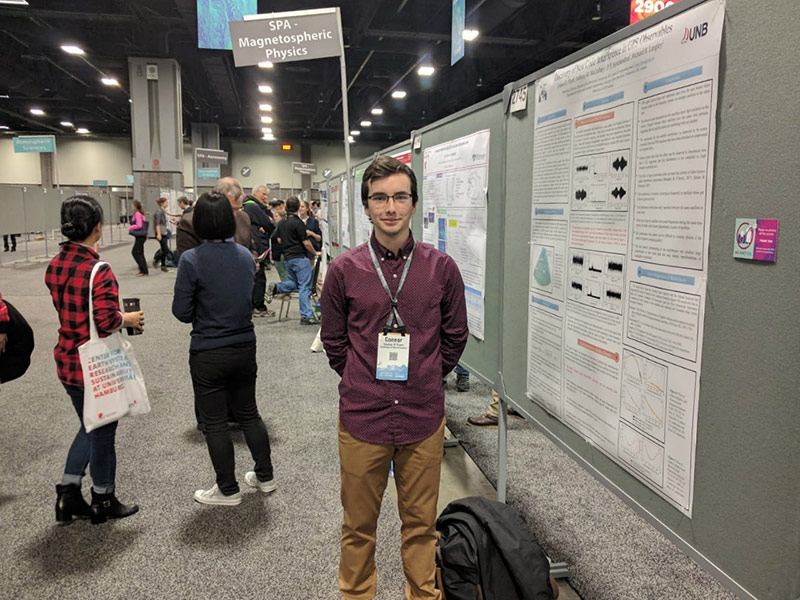University of New Brunswick student makes major GPS signal interference discovery
Author: UNB Newsroom
Posted on May 3, 2019
Category: UNB Fredericton

A fourth-year bio-chemistry student at the University of New Brunswick has made a major discovery surrounding GPS signal interference.
After nearly three summers of experimental research, UNB Fredericton student Connor Flynn discovered the source of frequent irregularities in GPS navigation signals that have occurred over the last decade.
GPS navigation signals, which are useful in a broad range of industries, are very versatile and have a variety of applications. They not only help aviation personnel plot out flight paths, but they can also help emergency personnel locate people in need. They are useful in agricultural and transportation industries and can even help the everyday user find their way through a new city.
Despite advancements in this area, GPS navigation signals have their pitfalls. GPS signals travel incredibly long distances in their journey from satellite to Earth-based receiver. As such, these signals are subject to interference from a variety of sources – from forests to cityscapes and even various natural phenomena within the upper atmosphere. Another potential source of interference is between the GPS signals themselves, given that multiple satellites are transmitting signals at any given time. To prevent this, each satellite-specific signal is assigned a unique code that essentially fits like a key in a lock, enabling receivers to distinguish between signals from different satellites.
“In today’s connected and technology dependent society, any small issue can interfere with these signals, which can create major problems, especially when everyone, whether knowingly or unknowingly, is dependent on Global Satellite Navigation Systems for position and navigation,” says Dr. P. T. Jayachandran, a professor in UNB’s physics department and Mr. Flynn’s research supervisor. “Connor’s research, which has been funded by the Canadian Space Agency and appropriately nicknamed ‘the Connor Effect,’ is a major breakthrough in physics research.”
Mr. Flynn, who was the recipient of the Undergraduate Student Research Award from the Natural Sciences and Engineering Research Council of Canada in 2016 and 2017, recently presented his research findings at the American Geophysical Union Fall Meeting 2018 in Washington, D.C.
“These irregularities arise from interference between satellite signals,” says Mr. Flynn. “The satellite-specific codes, which are supposed to prevent this, appear to morph during transmission and can actually resemble one another by the time they reach the receiver. This limits the receiver’s ability to determine satellite identity.”
Mr. Flynn’s research on GPS interference has been accepted for publication in the journal GPS Solutions.
Media contact: Angie Deveau
Photo: Connor Flynn at the American Geophysical Union Fall Meeting 2018 in Washington, D.C. Credit: Jayachandran Thayyil/UNB.
